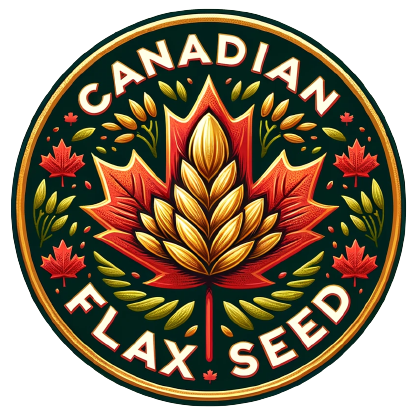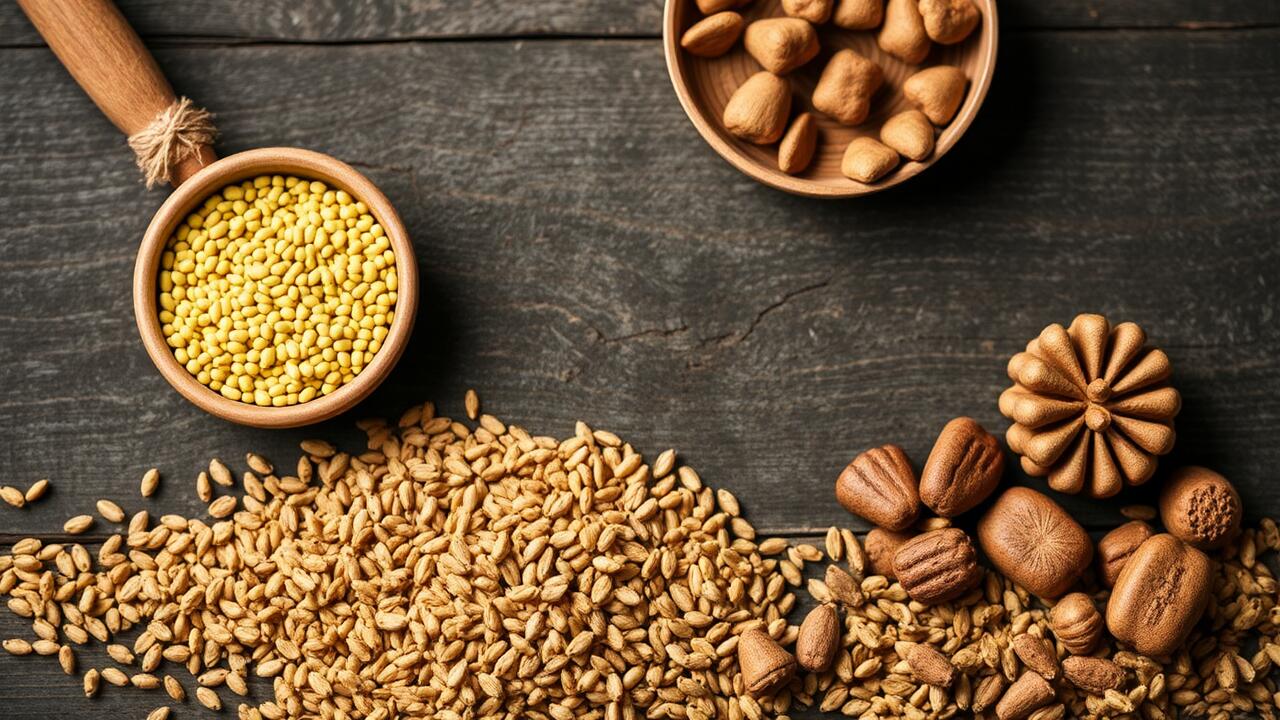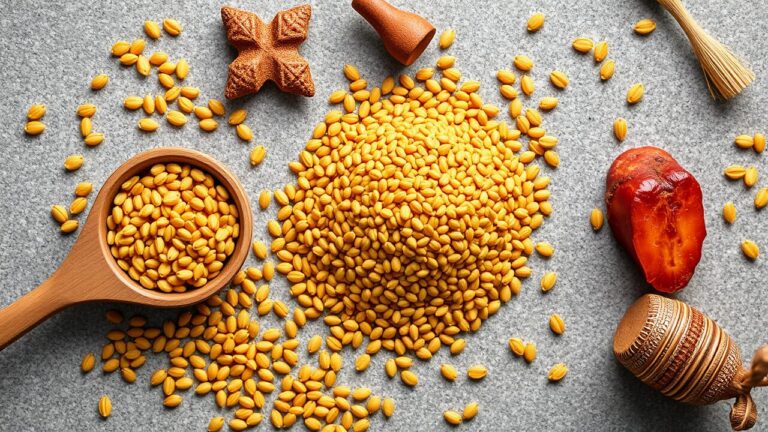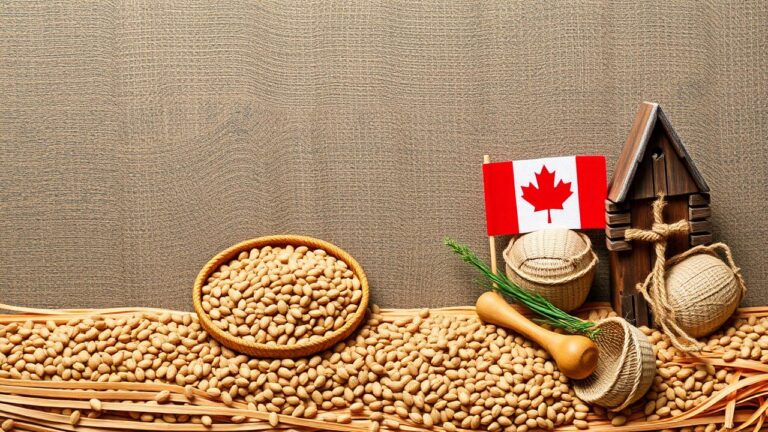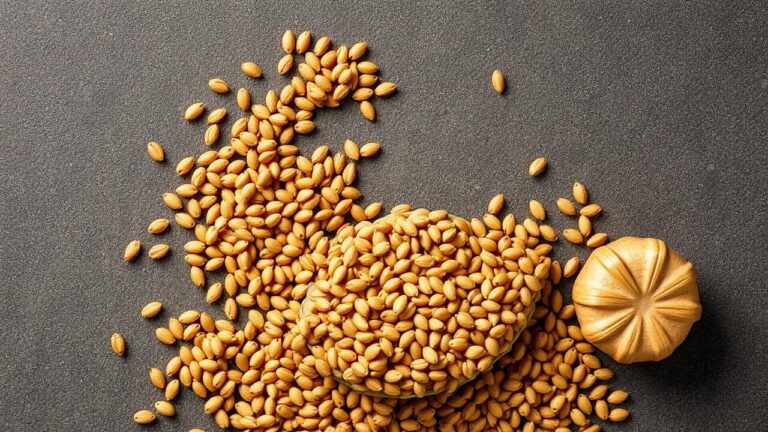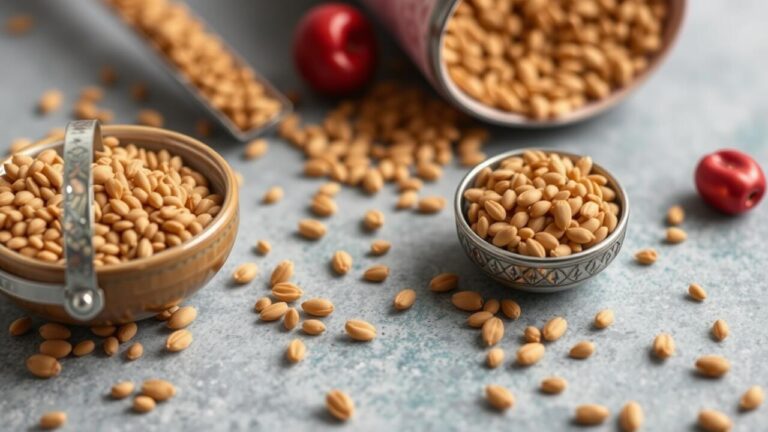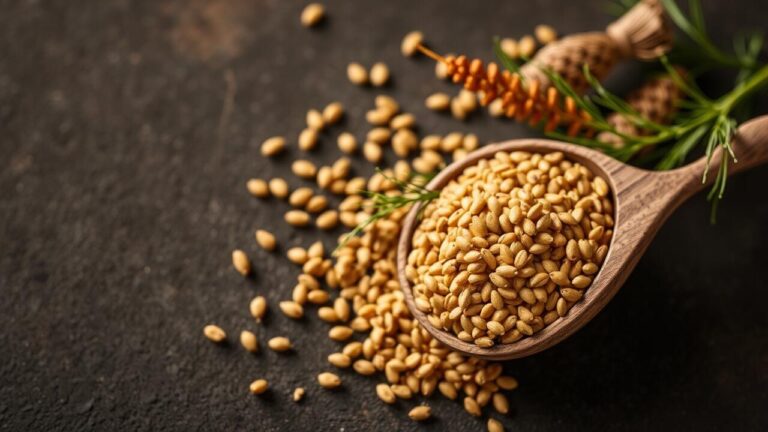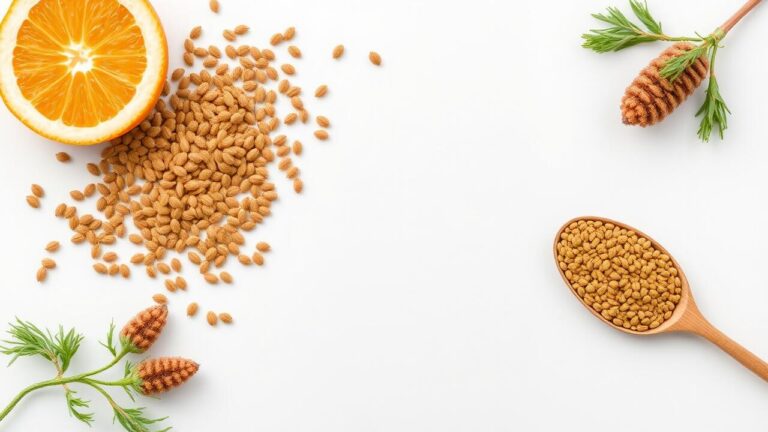Cultural Adaptation: Flaxseeds and Indigenous Communities in Canada
Table Of Contents
Cultural Adaptation: Flaxseeds And Indigenous Communities In Canada | Cultural Adaptation of Flaxseeds Among Indigenous Communities in Canada
Key Takeaways
- Exploration of cultural adjustment and its significance for indigenous groups in Canada
- Importance of flaxseeds in traditional indigenous nutrition
- Flaxseeds as an emblematic representation of cultural identity
- Modern methods of flaxseed farming and their implications
- Obstacles encountered by native communities in adapting practices
- Examples of effective cultural adjustment within indigenous populations
Cultural Adaptation: Flaxseeds And Indigenous Communities In Canada | Understanding Cultural Adaptation
Cultural adaptation plays a vital role in the lives of Indigenous peoples in Canada, particularly through the integration of flaxseeds into their traditional practices and diets. This adaptation reflects the resilience of Indigenous communities as they navigate the complexities of modern society while maintaining connections to their cultural heritage. Flaxseeds serve not only as a nutritional resource but also as a symbol of identity within the diverse cultures of Canada. The indigenous peoples of Canada have cultivated flaxseeds for generations, seamlessly blending this resource into their aboriginal culture and showcasing the significance of sustainable practices in their food systems. Understanding the cultural adaptation surrounding flaxseeds provides valuable insights into the broader context of indigenous studies and the ongoing efforts to preserve the knowledge and traditions of Indigenous Canadians in a rapidly changing world.
| Indigenous Community | Flaxseed Use | Traditional Practices | Sustainability Measures |
|---|---|---|---|
| Cree | Flaxseed oil for cooking | Incorporating flax in ceremonial dishes | Crop rotation and natural pest control |
| Haida | Flax fibers for weaving | Creating traditional clothing and fishing nets | Using traditional knowledge to preserve flax habitats |
| Mohawk | Flaxseed in nutritional meals | Participating in community feasts | Community education on sustainable farming |
| Dene | Medicinal uses of flaxseed | Traditional healing practices | Promoting biodiversity through mixed cropping |
Cultural Adaptation: Flaxseeds and Indigenous Communities in Canada | Definition and Importance of Cultural Adaptation
Cultural adaptation refers to the ways in which individuals and communities adjust to new cultural environments while maintaining aspects of their traditional practices. For Indigenous peoples in Canada, this process is particularly significant as they navigate their identity amidst changing societal norms and expectations. Through cultural adaptation, Indigenous populations and aboriginal communities have preserved vital aspects of their heritage, such as the use of flaxseeds, which serve not only as a dietary staple but also as a symbol of their cultural identity. Initiatives led by organizations like the Native Women’s Association of Canada aim to enhance crown-Indigenous relations, focusing on empowering Indigenous community voices in the conversation surrounding food sovereignty and cultural heritage.
The importance of cultural adaptation is evident in the resilience of Indigenous peoples, who continue to assert their cultural practices while integrating them into broader Canadian society. This dynamic is seen in the incorporation of traditional knowledge surrounding flaxseed cultivation, which is crucial to the diet and identity of many Indigenous communities. Encouraging sustainable practices not only benefits the indigenous population but also fosters awareness among non-Indigenous Canadians about the intricate relationship between cultural identity and environmental stewardship. Such adaptations are essential in forging a more inclusive future where the rich traditions of Indigenous peoples can enhance and enrich the Canadian cultural landscape.
Historical Context of Indigenous Communities in Canada
The rich tapestry of Indigenous communities in Canada illustrates the dynamic interplay between cultural adaptation and traditional practices. Aboriginal peoples have thrived for thousands of years, cultivating unique relationships with their environment, particularly through the use of plants like flaxseeds. Historical records maintained by the Canadian Archaeological Association highlight the significance of these practices in understanding the diverse cultures that form today’s Canadian identity. Indigenous ways of knowing emphasize the importance of honoring ancestral wisdom while allowing for adaptation to contemporary challenges.
Across various Canadian provinces, indigenous persons have preserved their heritage through storytelling, art, and agriculture. The cultivation of flaxseeds serves as a vital link between past and present, bridging traditional diets and modern nutritional practices. Current initiatives promoting Cultural Adaptation: Flaxseeds and Indigenous Communities in Canada underscore the potential for indigenous knowledge to enrich contemporary society. By valuing both ancient practices and modern innovations, the resilience of aboriginal people continues to shape the cultural landscape of Canada.
The Role of Flaxseeds in Indigenous Diets
Flaxseeds have become an essential component of the diets among Indigenous communities in Canada, reflecting a profound engagement with cultural adaptation. These communities have historically utilized local natural resources, fostering a connection between food sovereignty and traditional practices. As outlined in Canada’s Food Guide, flaxseeds provide essential nutrients that enhance indigenous health, reinforcing their cultural significance beyond mere sustenance. The Canadian Museum of Civilization highlights how flaxseeds were not only used for nutrition but also woven into the fabric of cultural practices in regions such as the Canadian Prairies and Northern Canada. Enhanced understanding of indigenous rights emphasizes that cultivating flaxseeds can bolster indigenous sovereignty, particularly in Western Canada, where knowledge from indigenous archaeology aids in reclaiming traditional diets. Such efforts resonate within ongoing discussions about cultural adaptation and the revival of traditional food systems among Indigenous communities across the Canadian territories.
- Flaxseeds are rich in omega-3 fatty acids, promoting cardiovascular health.
- They are a good source of dietary fiber, which aids in digestion.
- The seeds contain lignans, which have antioxidant properties that can help reduce the risk of chronic diseases.
- Flaxseeds can easily be incorporated into traditional recipes, enhancing both flavor and nutritional value.
- Their cultivation supports local economies by creating opportunities for Indigenous farmers.
- Using flaxseeds as a dietary staple strengthens cultural identity and community resilience.
- Flax-based products, like oil and meal, diversify food options and contribute to food security.
Nutritional Benefits of Flaxseeds
Flaxseeds have become essential in the dietary practices of Indigenous communities, particularly in the Canadian North. The seeds are rich in omega-3 fatty acids, fiber, and essential nutrients, which contribute significantly to the health and wellness of Métis peoples and other Aboriginal communities. In the context of cultural adaptation: flaxseeds and Indigenous communities in Canada, these nutritional benefits highlight how traditional diets are intertwined with health outcomes. The integration of flax into Indigenous food adaptation showcases Indigenous perspectives on nutrition and sustainability.
The traditional uses of flaxseeds extend beyond mere sustenance, embodying Indigenous values and practices. Indigenous initiatives have emphasized the importance of flax cultivation as part of an indigenous climate adaptation strategy. Recognizing the nutritional advantages of flax aligns with Indigenous views on holistic wellness. This approach to food reaffirmation contributes to the cultural identity of Indigenous peoples, ensuring that flax also contributed to Indigenous communities in maintaining their cultural heritage while promoting well-being.
Traditional Uses of Flaxseeds Among Indigenous Peoples
Flaxseeds hold a significant place in indigenous food cultures, representing both nutritional value and a connection to ancestral practices. As part of Cultural Adaptation: Flaxseeds and Indigenous Communities in Canada, indigenous individuals have utilized flaxseeds for centuries in various traditional dishes. These indigenous methods reflect a deep understanding of local ecosystems and the importance of indigenous crop adaptation. Through indigenous research methodologies, communities continue to explore the historical context of flaxseed usage, allowing for a broader appreciation of its role in indigenous priorities.
The cultivation of flaxseeds also emphasizes indigenous ways of life, with roots embedded in indigenous territorial practices. Many indigenous publications highlight the significance of flax in community rituals and daily sustenance. By focusing on indigenous seed adaptation, these communities not only preserve their cultural heritage but also contribute to sustainable farming techniques. The integration of indigenous practices into contemporary agricultural frameworks illustrates how traditional knowledge can inform modern approaches, strengthening the bond between the land and its stewards.
Flaxseeds as a Cultural Symbol
Cultural Adaptation: Flaxseeds and Indigenous Communities in Canada highlights the profound significance of flaxseeds in shaping indigenous identity within both communal and ceremonial contexts. For indigenous families, these seeds symbolize more than nutrition; they represent a deep cultural heritage and resilience. Non-indigenous people often overlook these aspects, yet the inclusion of flaxseeds in indigenous art and practices underscores a vital connection to the land. Through indigenous engagement and active participation in cultivation, communities strive to preserve their knowledge, creating a bridge between traditional practices and contemporary needs. Indigenous organizations play a crucial role in facilitating this cultural exchange, fostering relationships with their non-indigenous counterparts and ensuring that the history of flaxseed cultivation is honored in the Canadian boreal community.
- Flaxseeds are used in traditional ceremonies and rituals among Indigenous communities.
- The cultivation of flaxseeds offers a means of economic empowerment for Indigenous peoples.
- Flaxseed products, like oil and meal, are often integrated into modern Indigenous cuisine.
- Teaching the history and uses of flaxseeds helps preserve Indigenous knowledge for future generations.
- Flaxseeds symbolize resilience and adaptability in the face of colonization and change.
- Collaborations between Indigenous and non-Indigenous communities enhance cultural appreciation and sustainability.
- Flaxseeds contribute to the ongoing narrative of Indigenous identity and community revitalization.
Significance in Indigenous Ceremonies and Practices
Flaxseeds play a vital role in various indigenous ceremonies and practices, serving as symbols of resilience and cultural identity. These ceremonies often incorporate indigenous definitions of spirituality and community, reflecting deep roots in indigenous economies and indigenous science. The cultivation of flaxseeds not only offers nourishment but also empowers indigenous producers to maintain control over their agricultural practices. In these contexts, indigenous entities and governments highlight the importance of using traditional knowledge systems to guide contemporary practices, emphasizing the need for cultural climate adaptation in a changing world.
Indigenous contributions to the preservation of their cultural heritage often manifest through the celebration of flaxseeds in rituals and community gatherings. Such practices foster a sense of unity among community members while providing opportunities for aboriginal involvement in hands-on learning experiences. The participation of the non-indigenous population in these ceremonies can enhance awareness of indigenous traditions, promoting respect and understanding. As indigenous institutions continue to evolve, they strive to strengthen the cultural significance of flaxseed cultivation, ensuring its relevance in the lives of future generations.
Preservation of Indigenous Knowledge Through Flaxseed Cultivation
Flaxseed cultivation serves as a vital medium for preserving indigenous knowledge within various communities in Canada. This practice not only emphasizes the nutritional benefits of flaxseeds but also reinforces indigenous values that resonate with the cultural identities of the aboriginal population. As indigenous households engage in cultivating flaxseeds, they foster a deeper connection to their ancestral traditions. This cultural adaptation is significant for communities such as the Dene, Métis, and Inuit, enhancing their resilience against the influences of modernity while strengthening crown-indigenous relations.
The intricate knowledge surrounding flaxseed cultivation is passed down through generations, allowing indigenous access to important agricultural practices that sustain their communities. Non-indigenous individuals can also learn from these traditional methods, creating a framework for collaboration and cultural exchange. The integration of flaxseeds into local diets not only supports Canadian community health but also enriches the cultural tapestry of indigenous settlements. By recognizing the importance of flaxseeds, all communities can play a role in honoring and preserving the diverse cultures that define Canada’s landscape.
Contemporary Practices of Flaxseed Cultivation
Cultural Adaptation: Flaxseeds and Indigenous Communities in Canada showcases a vibrant interplay between traditional practices and modern techniques in flaxseed cultivation. Many Cree communities, drawing from indigenous wisdom, have begun to integrate sustainable farming methods that honor their indigenous ancestry while also addressing contemporary food sovereignty. This approach not only promotes the nutritional benefits of flaxseeds for indigenous children but also strengthens the ties to traditional indigenous foodways. Canadian studies and indigenous health research indicate that revitalizing these practices can enhance the overall well-being of the indigenous population. Collaborations with non-indigenous partnerships enable the sharing of knowledge and resources, thereby fostering a resilient framework for indigenous governance. The results can be seen in various aboriginal peoples surveys, highlighting the positive impacts on community health and cultural identity.
Sustainable Farming Techniques
Sustainable farming techniques within Cultural Adaptation: Flaxseeds and Indigenous Communities in Canada play a vital role in enhancing indigenous agriculture. These practices often arise from intra-indigenous conversations, where knowledge is shared among communities to adapt to changing environmental conditions. Indigenous women are frequently at the forefront of these efforts, leveraging cultural resources and traditional knowledge to implement eco-friendly farming methods. Partnerships with organizations, including Northern Affairs Canada, help bolster these initiatives, ensuring that indigenous liaisons facilitate access to essential agricultural services.
The integration of cultural seed adaptation is crucial for the revitalization of indigenous economics, aligning traditional practices with contemporary demands. Canadian state support for indigenous services has become essential in providing the tools necessary for sustainable flaxseed production. Canadian museums also play a part in documenting and showcasing these techniques, fostering a greater appreciation of indigenous mobility and innovation in agriculture. The blend of traditional knowledge and modern techniques demonstrates the resilience of indigenous communities in maintaining their heritage while evolving within today’s agricultural landscape.
| Technique | Description | Benefits |
|---|---|---|
| Crop Rotation | Alternating different crops in a specific sequence on the same land | Improves soil health and prevents pest buildup |
| Intercropping | Growing two or more crops in proximity for mutual benefit | Enhances biodiversity and maximizes resource use |
| Permaculture | Designing agricultural ecosystems that mimic natural ecosystems | Increases sustainability and reduces the need for chemical inputs |
| Agroforestry | Integrating trees and shrubs into crop and livestock systems | Enhances biodiversity and improves soil quality |
| Soil Conservation | Techniques like cover cropping to protect against erosion | Maintains soil structure and health |
Community Involvement in Flaxseed Production
Community involvement plays a crucial role in promoting the Cultural Adaptation: Flaxseeds and Indigenous Communities in Canada. Indigenous farmers, alongside non-indigenous members, work collaboratively to revitalize traditional practices and ensure the cultivation of indigenous food. This partnership bridges knowledge gaps, fostering cultural survival and resilience. Engagement with aboriginal children in these efforts helps instill a sense of pride in their heritage and connection to the land, ensuring that teachings from indigenous ancestors hundreds of years ago remain alive and relevant in today’s indigenous food climate.
Local initiatives highlight the importance of community-driven approaches to flaxseed production. Programs that integrate indigenous-authored content about traditional uses of flaxseeds encourage active participation from all community members. These initiatives address challenges posed by indigenous displacement and the impacts of modernization on indigenous practices. Emphasizing the significance of the Inuit homeland, the community’s collective efforts in flaxseed cultivation not only contribute to food security but also strengthen cultural ties and promote a sustainable future.
Challenges Faced by Indigenous Communities
The challenges surrounding Cultural Adaptation: Flaxseeds and Indigenous Communities in Canada highlight a complex interaction between indigenous food leaders and non-indigenous actors. Many Canadian households struggle to integrate indigenous diets that have traditionally relied on native ecosystems and indigenous seed practices. Economic barriers often hinder the implementation of indigenous-led models, which are crucial for promoting indigenous self-determination in a landscape dominated by non-indigenous curators and Western agricultural practices. The influence of modernization leads to a dilution of traditional knowledge, making it difficult for indigenous communities to thrive while maintaining cultural practices. These obstacles emphasize the need for collaborative efforts that honor non-western cultures and seek to revitalize the role of flaxseeds within indigenous frameworks.
Economic Barriers in Flaxseed Production
Economic barriers significantly impact the ability of Indigenous communities to cultivate flaxseeds within the framework of Cultural Adaptation: Flaxseeds and Indigenous Communities in Canada. Many indigenous mothers and families face economic hardships that hinder access to traditional methods of flaxseed production. Limited resources and funding restrict their ability to sustain cultural practices related to flaxseed farming. This situation is particularly evident among communities like the Woodland Cree and Dene/Métis populations, where reliance on modern agricultural practices often conflicts with traditional knowledge and methods.
In so-called Canada, the national adaptation strategy surrounding agricultural practices must prioritize the inclusion of indigenous voices and adaptations to ensure sustainability. The Indigenous Health Report highlights that economic barriers not only affect production but also undermine the holistic connection between indigenous hunters and their land. For Yukon communities and other Indian communities, these challenges hinder the revitalization of traditional flaxseed cultivation, leading to a decline in cultural heritage surrounding this vital crop. Cultural Adaptation: Flaxseeds and Indigenous Communities in Canada must address these economic obstacles to strengthen the resilience of Indigenous populations and their agricultural practices.
Influence of Modernization on Traditional Practices
Modernization poses significant challenges to traditional practices of Indigenous communities, particularly regarding the cultivation and use of indigenous seed varieties. The integration of non-Indigenous governing bodies can often lead to the erosion of indigenous seed keepers’ knowledge and practices. For instance, Inuit families in Northern Ontario face pressures that threaten their cultural items tied to traditional seed climates. This scenario highlights the critical role of cultural adaptation in preserving these practices amid changing socio-economic landscapes.
The impact of modernization is evident in how Indigenous communities negotiate their identities and cultural protection in contemporary society. Indigenous negotiation processes are essential for maintaining the balance between modern agricultural methods and traditional practices. The Canadian Museum Association acknowledges this delicate interplay, emphasizing the importance of preserving Indigenous cultural heritage. Inuit living experiences today must adapt to ensure the continuity of cultural practices while embracing modern challenges within the framework of Cultural Adaptation: Flaxseeds and Indigenous Communities in Canada.
Case Studies of Successful Cultural Adaptation
Examples of successful cultural adaptation highlight the vital role of indigenous-guided funding in revitalizing indigenous food systems across various regions. First Nations communities and Inuit regions have increasingly embraced flaxseeds, recognizing their cultural significance and nutritional benefits. Through indigenous-led knowledge revitalization, these communities have prioritized the cultivation of traditional species, which aligns with their cultural beliefs and teachings. This mixed culture approach emphasizes not only the preservation of cultural heritage but also the educational aspects surrounding the use of indigenous seeds and their sustainable farming practices. These case studies exemplify how the integration of cultural teachings with modern agricultural techniques can lead to enhanced resilience and identity among communities, reflecting the ongoing relevance of Cultural Adaptation: Flaxseeds and Indigenous Communities in Canada.
Conclusion
Cultural adaptation plays a vital role in the relationship between flaxseeds and Indigenous communities in Canada. This connection not only fosters a sustainable agricultural practice but also bolsters the overall well-being of community members. By integrating traditional knowledge and modern techniques, these communities enhance their cultural rights and promote aboriginal health access. The significance of cultural activities surrounding flaxseed cultivation is evident among Inuit community members and other Indigenous peoples, reflecting their commitment to preserving cultural heritage while creating indigenous employment opportunities. Institutions like the Canadian Centre support these efforts, emphasizing the importance of cultural agriculture in nurturing both health and identity within Indigenous communities.
FAQS
How are flaxseeds being used within the context of indigenous food sovereignty among Canadian Indigenous communities?
Flaxseeds play a significant role in indigenous food sovereignty, particularly within Canadian Indigenous peoples. The cultivation and use of indigenous seed varieties, such as those found in various indigenous cultures, reflect a commitment to cultural heritage preservation and sustainable agricultural practices. Indigenous governments and communities across Canada, including Metis and Inuit communities, actively engage in indigenous research methodology to promote indigenous participation in agricultural initiatives. Furthermore, agencies like Indigenous Services Canada and Crown-Indigenous Relations and Northern Affairs Canada support these efforts by recognizing the importance of traditional knowledge and practices among the northern Canadian population, which includes both indigenous and non-indigenous women. Overall, the focus on flaxseeds illustrates the broader integration of indigenous uses of natural resources in the Canadian context, enhancing the food sovereignty of Aboriginal Canadians.
How are indigenous people in Canada engaging with flaxseeds in their agricultural practices?
Indigenous people in Canada are increasingly integrating flaxseeds into their agricultural practices as part of their efforts to promote food sovereignty and control over their natural resources. This engagement fosters the use of indigenous seed varieties that are adapted to the local climate, supporting the health and nutrition of indigenous adults and communities, such as the Woodland Cree and Dene/Métis communities. Moreover, a Canadian study highlighted the importance of these practices as a means to preserve traditional knowledge and strengthen cultural identities within indigenous sections of the population.
How are indigenous communities in Canada, such as the Woodland Cree community, incorporating indigenous seed varieties like flaxseeds into their agricultural practices?
In various regions, including Northern Ontario, Canadian Indigenous communities are reclaiming indigenous control over their agricultural practices by utilizing indigenous seed varieties, including flaxseeds. This approach aligns with efforts to adapt to the changing indigenous seed climate and emphasizes the importance of natural resources Canada in supporting these initiatives. Furthermore, it highlights the role of both indigenous men and women in promoting sustainable practices within Canadian agriculture, showcasing the rich tapestry of Canadian art and culture in the process.
How do the practices of the Woodland Cree community and other northern Ontario communities align with the recognition of indigenous seed varieties like flaxseeds in the context of Australian Indigenous perspectives and food sovereignty in Canada?
The Woodland Cree community, along with various northern Ontario communities, embraces the use of indigenous seed varieties such as flaxseeds while also drawing parallels to the concept of food sovereignty recognized in Australian Indigenous practices. This alignment emphasizes the significance of traditional knowledge and agricultural methods in maintaining cultural identity and sustainable practices within the broader term Canada’s approach to indigenous food systems.
What role do indigenous seed varieties, such as flaxseeds, play in the agricultural practices of northern Ontario communities?
Indigenous seed varieties, including flaxseeds, are integral to the agricultural practices of northern Ontario communities, promoting biodiversity and cultural heritage while enhancing food sovereignty for indigenous peoples. These communities work to preserve and cultivate indigenous seed varieties to maintain their traditional agricultural knowledge and practices.
What are the benefits of cultivating indigenous seed varieties, such as flaxseeds, for the northern Ontario community?
Cultivating indigenous seed varieties, such as flaxseeds, provides numerous benefits for the northern Ontario community. These benefits include enhanced biodiversity, improved resilience to local climate conditions, and increased cultural ties to traditional agricultural practices. Additionally, the use of indigenous seed varieties supports food sovereignty and the sustainability of local food systems.
How do indigenous peoples in Canada view the importance of indigenous seed varieties in promoting food sovereignty?
Indigenous peoples in Canada emphasize the significance of indigenous seed varieties for their agricultural practices as a means of reclaiming traditional food systems and enhancing food sovereignty. By integrating indigenous seed varieties, such as flaxseeds, they aim to revitalize cultural heritage and ensure sustainable agriculture that aligns with their values and local ecosystems.
Why is it essential for Canadian Indigenous communities to promote and cultivate indigenous seed varieties like flaxseeds in their local agricultural systems?
Promoting and cultivating indigenous seed varieties, such as flaxseeds, is crucial for Canadian Indigenous communities as it enhances biodiversity, preserves cultural heritage, and fosters food sovereignty. By prioritizing indigenous seed varieties, these communities can maintain traditional agricultural practices that are deeply connected to their identities and ecosystems.
What challenges do Canadian Indigenous communities face in promoting indigenous seed varieties like flaxseeds within their local agricultural systems?
Canadian Indigenous communities often encounter various challenges when promoting indigenous seed varieties, such as flaxseeds, within their local agricultural systems. These challenges can include limited access to traditional knowledge about indigenous seed varieties, the impact of climate change on crop yields, and the need for more education regarding sustainable agricultural practices that prioritize indigenous seed varieties. Additionally, advocacy for policy changes and access to land suitable for cultivating these indigenous seed varieties can also pose significant hurdles.
How do Canadian Indigenous communities preserve indigenous seed varieties in their traditional agricultural practices?
Preserving indigenous seed varieties is crucial for Canadian Indigenous communities as it promotes biodiversity and sustains their cultural heritage. By prioritizing indigenous seed varieties, these communities can enhance food sovereignty, ensure the resilience of their agricultural practices, and maintain traditional knowledge associated with these seeds.
